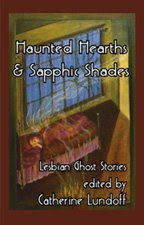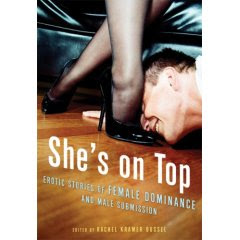I’ve been in the tiny universe of erotica long enough that I understand the niches publishers inhabit, but you might not. Perhaps you wrote your story with a publisher in mind. If you didn’t, you’re going to have to do some research. Go to the publisher’s website and check out their newest offerings. Read their submission guidelines. If possible, read a couple of their books. Don’t waste their time and don’t waste yours sending the wrong book to the wrong publisher.
Just as you wouldn’t submit a book
on puppy training to a publisher of cookbooks, you shouldn’t submit your erotic
romance novel to a publisher of (literary) erotica. If you don’t know the
difference between erotic romance and literary erotica, don’t feel bad. It’s
not a simple distinction and the line between the two is blurry at best. As a
generalization, erotic romance is written in the genre style of romance. It absolutely
requires a happy-ever-after or happily-for-now ending, and focuses on the relationship
between two (sometimes three) people. So yes, there’s graphic sex but it’s
about bonding the characters emotionally.
Literary erotica is written in the
genre style of literary fiction, but it can have a happily-ever-after ending
and it may focus on a relationship. Rather than emotional bonding though, sex
scenes are (normally) used to define or change a character.
Still don’t know
where your book falls in the spectrum? Erotic romance sells better than
literary erotica, so if you have a novel that dances on the foggy boundary (with requisite
happy ending), and sales matter to you, you might want to call it erotic romance and seek out those publishers.
~~
Before you sign with any publisher,
send emails to several writers with books at that publisher. Ask them if their
publishing experience was good. Ask them if they get paid royalties regularly
and on time. Find someone who used to publish through them who doesn’t anymore
and ask why. Check Predators and Editors. If you’ve hung around writer’s lists
long enough, you’ve seen the horror stories of unpaid royalties, rights being
tied up in court, unprofessional and unscrupulous business practices, and a
host of other problems. Experienced writers place their books with several
different publishers to mitigate exposure to their publisher’s business
problems, but even a good shop can go to hell overnight, especially if it’s
small press and the owner is essentially the entire company. All it takes is a
car accident or sudden illness. I’m not saying be paranoid, but be aware of who
you’re entering into a contract with. It’s called due diligence. Do your
homework. Protect yourself.
Also check the terms of the
contract thoroughly and know what each paragraph means. There are websites that
will warn you about bad contract terms. Things I’ve turned down contracts for:
a clause that said I could never speak ill of the publisher or its employees.
First look rights (this sounds good but it isn’t for YOU). A contract that
meant they had my rights forever. A contract that demanded I prove my gender. Lousy
ebook royalties. The right to use 100%
of my story for “advertising” with no additional compensation in any
publication or website the conglomerate owned.
And yes, I tried to negotiate those terms because everyone says you can
negotiate. “Everyone” is either a writer with a lot of pull or a liar because for
the most part you’ll be told to sign it or go away. Only you can decide what’s
right for you and how desperate you are to be published.
Five or six years
ago, a large erotic romance e-publisher bought a novel from me. (Yes, I wrote a book that could pass as erotic romance. It happens.) Three months after the contract was signed,
they sent an email that they tried to back date telling me that my novel was
rejected. Yeah, you can type a date from months ago in the body of an email,
but the time stamp of when it was received is all that counts, people. For some
reason telling me they changed their mind was out of the question, and so was
being polite or apologetic about it. I still have that SIGNED contract in my
files. Did I try to enforce it? No. I didn’t see the point. I didn’t want to do
business with a company that proved they had no morals. So just be aware that
even a signed contract means nothing unless you have
the means and desire to fight it in court if it is breached.
~~
I had a publisher in mind when I
wrote Night Creatures (still playing with the title, I may make it Night
Kreatures.) so I didn’t have to research
them. I did, however, have to ask what they like to see in a submission and how
they wanted it formatted, because part of being a professional writer is taking
the business side seriously. If your writing doesn’t make your story stand out,
don’t for a second believe that comic sans font will. Giving the publisher what
they want, in the format they want it, and only what they want tells the
publisher that you’re a reasonable person who won’t give them trouble over
stupid things. (So if your manuscript is accepted, prove it by not being an ass
over stupid things. Seriously, writer folk, don't be THAT writer.)
After I knew what the publisher
wanted, I put together my submission package, which in this case was an email.
They didn’t ask for a synopsis (joy, rapture! I loathe writing a synopsis) so I
sent a simple cover letter (body of the email), formatted like a business email
(my full contact info, date, etc.), with all the usual cover letter info: title
of the work, genre, word count (complete) in the first paragraph. A brief
synopsis of the story (second paragraph). Wind up: thank you for your
consideration… in the third paragraph, and a signature block. The full
manuscript was an attachment.
Sent it off and waited. And waited…
After a couple months I sent a polite inquiry about where I was in the
submission process. Polite. Don’t even type with an attitude. It’s a discreet
cough, not a temper tantrum. And I got a very nice reply back that basically
said “We need a few more weeks.” Not a problem, so I waited.
And here’s where you may expect
that I say “And it’s coming out in October!” Well, no. The publisher wants me
to rewrite the first two chapters and resubmit. Did I collapse onto my fainting
couch? Did I send it off to a different publisher? No. Rejection isn’t
personal. It’s an opportunity to learn something.
Being honest with
myself, I know that the first two chapters were the weakest part of my novel.
So I’m working on those chapters. I told the publisher that I would resubmit it
when I fixed my work, and I will. Now, if it’s turned down after that, I could
turn to another publisher, but because I understand the niche markets
publishers inhabit, I already know that there are few who would touch this edgy
piece. It’s dark and it’s bloody. I could self-publish. I think about those
options but it’s far too early in the process to give up on this publisher just
yet.










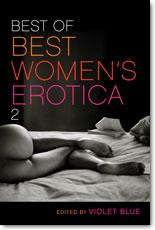

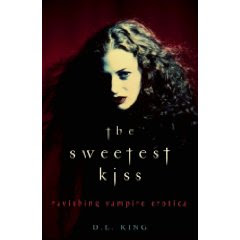


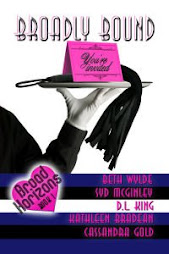.jpg)
